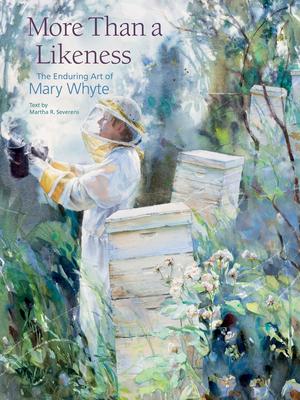More Than a Likeness: The Enduring Art of Mary Whyte is the first comprehensive book on the life and work of one of today's most renowned watercolorists. From Whyte's earliest paintings in rural Ohio and Pennsylvania, to the riveting portraits of her southern neighbors, historian Martha R. Severens provides us with an intimate look into the artist's private world.
With more than two hundred full-color images of Whyte's paintings and sketches, as well as comparison works by masters such as Winslow Homer, Andrew Wyeth, and John Singer Sargent, Severens clearly illustrates how Whyte's art has been shaped and how the artist forged her own place in the world today.
Though Whyte's academic training in Philadelphia was in oil painting, she learned the art of watercolor on her own--by studying masterworks in museums. Today Whyte's style of watercolor painting is a unique blend of classical realism and contemporary vision, as seen in her intimate portraits of Southern blue-collar workers and elderly African American women in the South Carolina lowcountry.
"For me ideas are more plentiful than the hours to paint them, and I worry that I cannot get to all of my thoughts before they are forgotten or are pushed aside by more pressing concerns," explains Whyte. "Some works take time to evolve. Like small seeds the paintings might not come to fruition until several years later, after there has been ample time for germination."
Using broad sweeping washes as well as miniscule brushstrokes, Whyte directs the viewer's attention to the areas in her paintings she deems most important. Murky passages of neutral colors often give way to areas of intense detail and color, giving the works a variety of edges and poetic focus. Several paintings included in the book are accompanied by enlarged areas of detail, showcasing Whyte's technical mastery.
More Than a Likeness is replete with engaging artwork and inspiring text that mark the mid-point in Whyte's artistry. Of what she will paint in the future, the artist says, "I have always believed that as artists we don't choose our vocation, style, or subject matter. Art chooses us."
